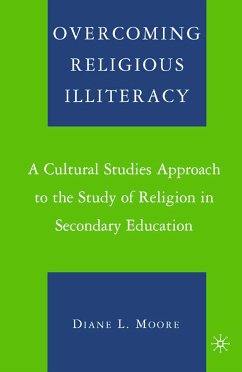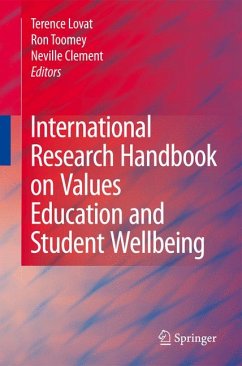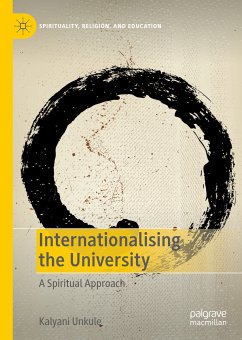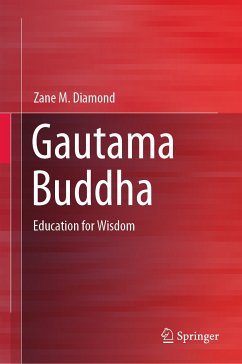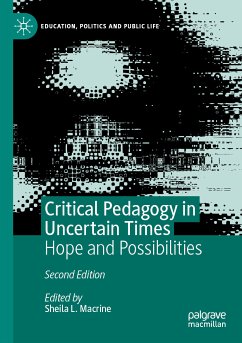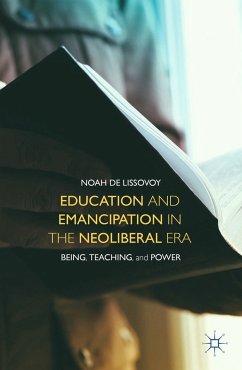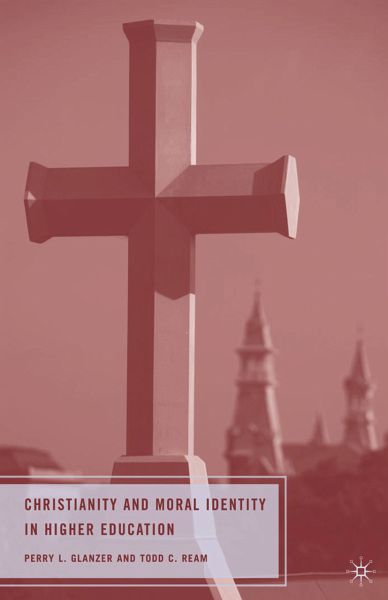
Christianity and Moral Identity in Higher Education (eBook, PDF)

PAYBACK Punkte
10 °P sammeln!






This book offers examples from both Christian and secular democratic institutions of higher education and then responds to possible criticisms about how moral education in a comprehensive humanist moral tradition may short change diversity, autonomy and critical thinking.
Dieser Download kann aus rechtlichen Gründen nur mit Rechnungsadresse in A, B, BG, CY, CZ, D, DK, EW, E, FIN, F, GR, HR, H, IRL, I, LT, L, LR, M, NL, PL, P, R, S, SLO, SK ausgeliefert werden.
Author Perry L. Glanzer: Perry L. Glanzer is Associate Professor of Educational Foundations at Baylor University, USA, and a Resident Fellow with the Baylor Institute for Studies of Religion. Author Todd C. Ream: Todd C. Ream is Professor of Higher Education at Taylor University, Indiana, USA
Produktdetails
- Verlag: Palgrave Macmillan US
- Seitenzahl: 275
- Erscheinungstermin: 23. November 2009
- Englisch
- ISBN-13: 9780230101494
- Artikelnr.: 46751693
"Glanzer and Ream initiate a conversation desperately needed concerning how Christian colleges and universities might begin, as well as do something about, the moral formation of their students. One suspects the subject has been avoided or hidden in useless generalizations because few know how to do that kind of moral training. That is why this book is so important. Glanzer and Ream actually tell us what needs to be done. How refreshing." - Stanley Hauerwas, Gilbert T. Rowe Professor of Theological Ethics, Duke University, USA
"Glanzer and Ream have written an intensely engaging, highly readable excursus into the most pressing issue for higher education - indeed, for the future of humane culture. Their thorough analysis, expert
"Glanzer and Ream have written an intensely engaging, highly readable excursus into the most pressing issue for higher education - indeed, for the future of humane culture. Their thorough analysis, expert
Mehr anzeigen
taxonomy, and compelling argument detail how even confessional Christian colleges and universities have failed to deliver a moral education, yet they offer practical help for those who would see a recovery of moral compass and ethical identity in such institutions." - David Lyle Jeffrey, Distinguished Professor of Literature and Humanities, Baylor University, USA
"Much to the chagrin of Stanley Fish and his comrades, Glanzer and Ream demonstrate - through compelling historical narrative and careful analysis - that every education is a moral formation. The question is: which morality? While others have made the case for Christian scholars to have a seat at the academic table, here finally is a book that highlights the unique, formative potential of Christian colleges and universities in the North American educational milieu . . . This is a book for Christian educators - but even more so for those cynics and skeptics who think 'Christian education' is an oxymoron." - James K.A. Smith, Calvin College, USA, and author of Desiring the Kingdom: Worship, Worldview, and Cultural Formation
"Christianity and Moral Identity in Higher Education is not only a well-written page-turner, it is a compelling critique of the modern (and postmodern) academy . . . an argument for Christian education enhancing critical thinking rather than preventing it . . . a curricular blueprint for a Christian education that privileges holistic human development based on fundamental human identities; and more." - Christian Higher Education
"The authors of this text have developed an excellent resource for exploring the topic of moral education in the arena of Christian higher education . . . we urge that it be required reading for those who represent the faith-based higher education community. Christianity and Moral Identity in Higher Education . . . offers much toward shaping the educational experiences of current and future undergraduate and graduate students being served by faith-based institutions." - The Review of Higher Education
"Much to the chagrin of Stanley Fish and his comrades, Glanzer and Ream demonstrate - through compelling historical narrative and careful analysis - that every education is a moral formation. The question is: which morality? While others have made the case for Christian scholars to have a seat at the academic table, here finally is a book that highlights the unique, formative potential of Christian colleges and universities in the North American educational milieu . . . This is a book for Christian educators - but even more so for those cynics and skeptics who think 'Christian education' is an oxymoron." - James K.A. Smith, Calvin College, USA, and author of Desiring the Kingdom: Worship, Worldview, and Cultural Formation
"Christianity and Moral Identity in Higher Education is not only a well-written page-turner, it is a compelling critique of the modern (and postmodern) academy . . . an argument for Christian education enhancing critical thinking rather than preventing it . . . a curricular blueprint for a Christian education that privileges holistic human development based on fundamental human identities; and more." - Christian Higher Education
"The authors of this text have developed an excellent resource for exploring the topic of moral education in the arena of Christian higher education . . . we urge that it be required reading for those who represent the faith-based higher education community. Christianity and Moral Identity in Higher Education . . . offers much toward shaping the educational experiences of current and future undergraduate and graduate students being served by faith-based institutions." - The Review of Higher Education
Schließen
Für dieses Produkt wurde noch keine Bewertung abgegeben. Wir würden uns sehr freuen, wenn du die erste Bewertung schreibst!
Eine Bewertung schreiben
Eine Bewertung schreiben
Andere Kunden interessierten sich für


